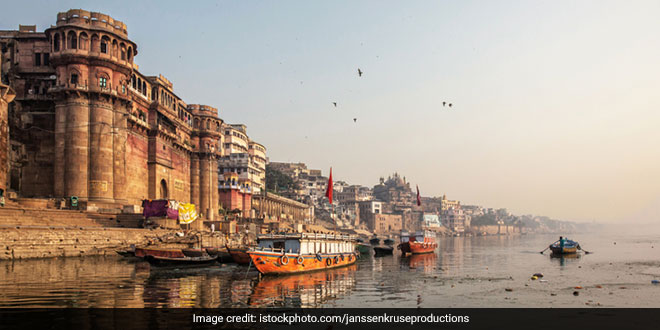New Delhi: An international all-woman team of researchers will soon embark on an expedition to study plastic pollution in river Ganga and document the flow of plastic waste from the source to sea, the National Geographic Society said on Monday (May 6). The expedition — Sea to Source: Ganges — will offer a unique and unprecedented opportunity to scientifically document plastic waste in a watershed and develop holistic and inclusive solutions, it said.
An international, all-female expedition team will study plastic pollution in one of the world’s most iconic waterways — the Ganges River (known locally as Ganga and Padma).
The team plans to share its expedition experiences real-time on National Geographic’s website. The expedition is likely to begin towards the end of this month. It will be done in partnership with Dehradun-based Wildlife Institute of India (WII), the University of Dhaka and WildTeam, and is part of National Geographic’s journey to better understand and document how plastic waste travels from the source to sea and to fill critical knowledge gaps around plastic flow, load, and composition, it said in a statement. It said,
The expedition will offer a unique and unprecedented opportunity to scientifically document plastic waste in a watershed and develop holistic and inclusive solutions.
Also Read: Ganga Rejuvenation: Without Continuous Flow, Clean Ganga Not Possible, Say Environmentalists
According to the Washington-based non-profit organisation, the ocean is clogged with an estimated nine million tonnes of plastic every year, and rivers play a significant role in this problem as they act as conveyor belts for plastic debris flowing into the ocean.
“The ‘Sea to Source: Ganges’ expedition is the first of several international river expeditions planned as part of National Geographic’s ‘Planet or Plastic’ initiative, which aims to significantly reduce the amount of single-use plastic that reaches the ocean. It stated,
After an initial expedition to the Ganges, the team plans to replicate the expedition after the monsoon season to capture seasonal variations.
The expedition team of 15 scientists and engineers, co-led by National Geographic Fellows Jenna Jambeck and Heather Koldewey, will work with international partners to provide science-based, actionable information to build capacity for local solutions. Valerie Craig, vice president of operating programmes at the National Geographic Society was quoted as saying in the statement,
National Geographic is deeply committed to advancing solutions to the plastic waste crisis. These expeditions are a tremendous opportunity to mobilise a global community of experts to help tackle the problem.
She said,
I’m particularly delighted that this expedition elevates women in science, technology, engineering and math around the world to help us understand how plastic moves through our waterways and ultimately to find ways to prevent plastic waste from entering the ocean.
Also Read: National Mission for Clean Ganga Highlights Efforts Taken For Ganga Rejuvenation
As part of its commitment to reduce plastic pollution from entering the ocean, the team aims to be environment-friendly and single-use plastic free throughout the expedition. The expedition will focus on plastic pollution in three key areas: land, water, and people. The statement said,
The team working on the land portion will collect data on the input and use of plastic in communities, and how waste is collected and managed, and will quantify the movement and type of plastic in the environment. The water team will study plastic pollution in the air, water, sediment, and species in and around the river.
The socio-economic team will survey local communities along the expedition route to better understand awareness and perceptions of plastic pollution, household plastic waste management and local solutions for addressing this issue, the Society said.
Also Read: Ganga Cleanup: 10 Projects Worth Rs. 1,573 Crore Approved For Cleaning Ganga
During the expedition, the team will work with local stakeholders to translate its scientific findings, using storytelling to raise awareness about plastic pollution and drive behaviour change, it added. The statement said,
This is the largest ever all-female National Geographic expedition; the first time there has been a four-dimensional comprehensive investigation of the plastic pollution issue at this scale across sediment, water, air, and land.
This initial expedition is planned to begin in the Bay of Bengal through the Padma River and to end at the source of the Ganges in the Himalaya.
NDTV – Dettol Banega Swachh India campaign lends support to the Government of India’s Swachh Bharat Mission (SBM). Helmed by Campaign Ambassador Amitabh Bachchan, the campaign aims to spread awareness about hygiene and sanitation, the importance of building toilets and making India open defecation free (ODF) by October 2019, a target set by Prime Minister Narendra Modi, when he launched Swachh Bharat Abhiyan in 2014. Over the years, the campaign has widened its scope to cover issues like air pollution, waste management, plastic ban, manual scavenging and menstrual hygiene. The campaign has also focused extensively on marine pollution, clean Ganga Project and rejuvenation of Yamuna, two of India’s major river bodies.




























